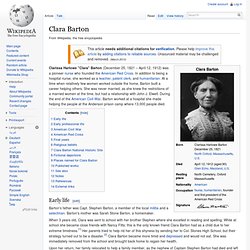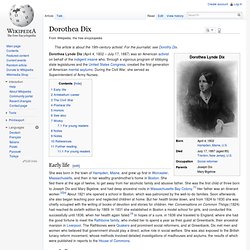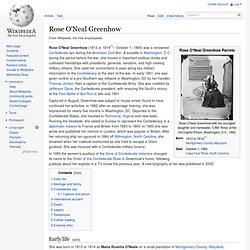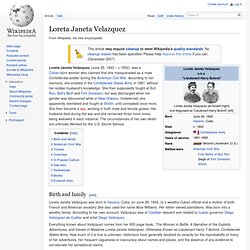

Clara Barton. Clarissa Harlowe "Clara" Barton (December 25, 1821 – April 12, 1912) was a pioneer nurse who founded the American Red Cross.

In addition to being a hospital nurse, she worked as a teacher, patent clerk, and humanitarian. At a time when relatively few women worked outside the home, Barton built a career helping others. She was never married, as she knew the restrictions of a married women at the time, but had a relationship with John J. Elwell. During the end of the American Civil War, Barton worked at a hospital she made helping the people at the Anderson prison camp where 13,000 people died. Early life[edit] Barton's father was Capt.
Upon her return, her family relocated to help a family member, as the nephew of Captain Stephen Barton had died and left his wife with four children and a farm. Early professional life[edit] Clara Barton became an educator in 1838 for a dozen years in schools in Canada and West Georgia. American Civil War[edit] Clara Barton circa 1866. American Red Cross[edit] Dorothea Dix. Dorothea Lynde Dix (April 4, 1802 – July 17, 1887) was an American activist on behalf of the indigent insane who, through a vigorous program of lobbying state legislatures and the United States Congress, created the first generation of American mental asylums.

During the Civil War, she served as Superintendent of Army Nurses. Early life[edit] She was born in the town of Hampden, Maine, and grew up first in Worcester, Massachusetts, and then in her wealthy grandmother's home in Boston. She fled there at the age of twelve, to get away from her alcoholic family and abusive father.
She was the first child of three born to Joseph Dix and Mary Bigelow, and had deep ancestral roots in Massachusetts Bay Colony.[1] Her father was an itinerant worker.[2][a] About 1821 she opened a school in Boston, which was patronized by the well-to-do families. 5539. Rose O'Neal Greenhow. Captured in August, Greenhow was subject to house arrest; found to have continued her activities, in 1862 after an espionage hearing, she was imprisoned for nearly five months in Washington, DC.

Deported to the Confederate States, she traveled to Richmond, Virginia and new tasks. Running the blockade, she sailed to Europe to represent the Confederacy in a diplomatic mission to France and Britain from 1863 to 1864. In 1863 she also wrote and published her memoir in London, which was popular in Britain. After her returning ship ran aground in 1864 off Wilmington, North Carolina, she drowned when her rowboat overturned as she tried to escape a Union gunboat. She was honored with a Confederate military funeral. In 1993 the women's auxiliary of the Sons of Confederate Veterans changed its name to the Order of the Confederate Rose in Greenhow's honor, following publicity about her exploits in a TV movie the previous year.
Early life[edit] Marriage and family[edit] RoseGreenhow. Loreta Janeta Velazquez. Loreta Janeta Velázquez (June 26, 1842 – c.1902), was a Cuban-born woman who claimed that she masqueraded as a male Confederate soldier during the American Civil War.

According to her memoirs, she enlisted in the Confederate States Army in 1861, without her soldier-husband's knowledge. She then supposedly fought at Bull Run, Ball's Bluff and Fort Donelson, but was discharged when her gender was discovered while in New Orleans. Undeterred, she apparently reenlisted and fought at Shiloh, until unmasked once more. She then became a spy, working in both male and female guises. Her husband died during the war and she remarried three more times; being widowed in each instance. Birth and family[edit] Everything known about Velázquez comes from her 600-page book, 'The Woman in Battle: A Narrative of the Exploits, Adventures, and travels of Madame Loreta Janeta Velázquez, Otherwise Known as Lieutenant Harry T Buford, Confederate States Army.
American Civil War[edit] Travels[edit] Loreta-janeta-velazquez-arry.